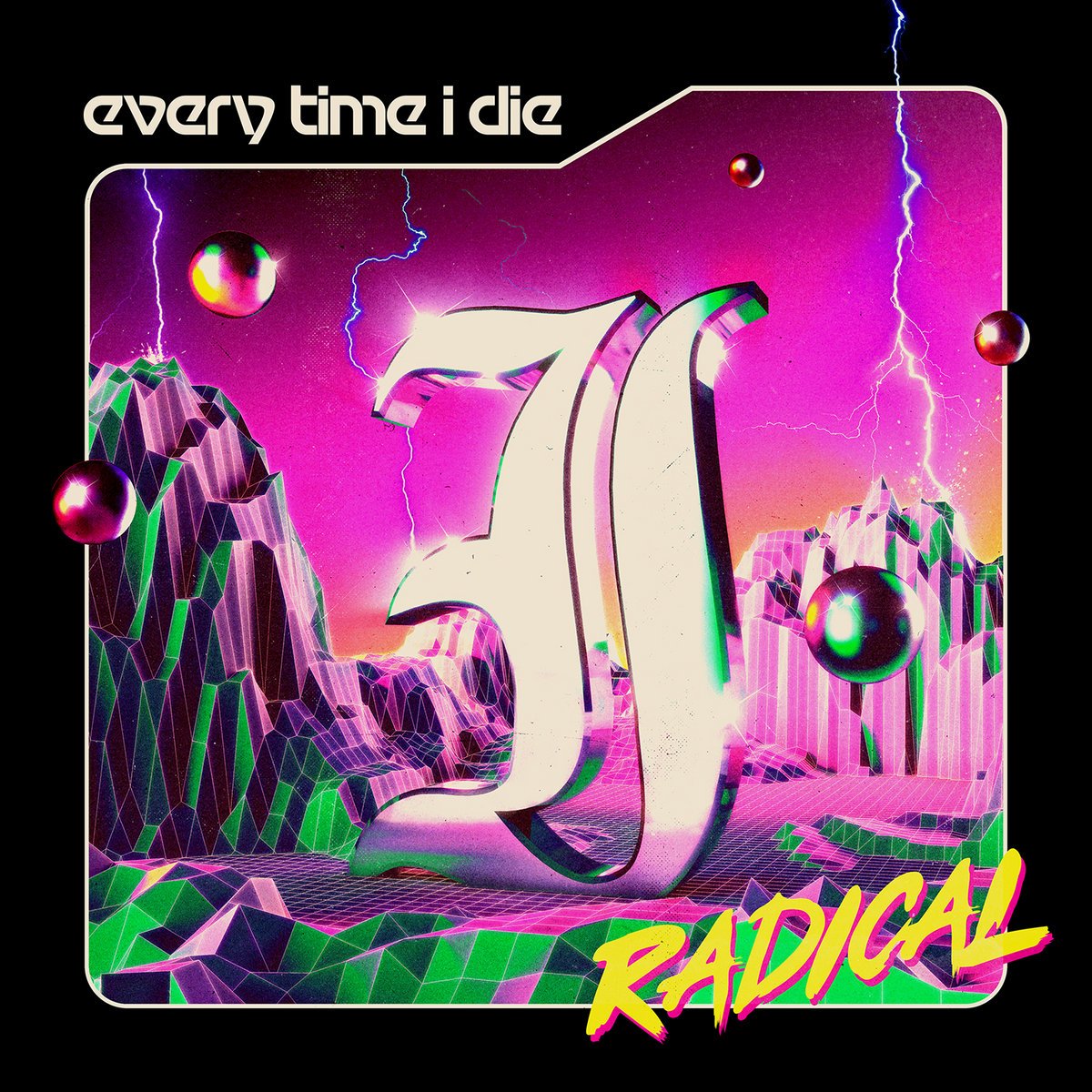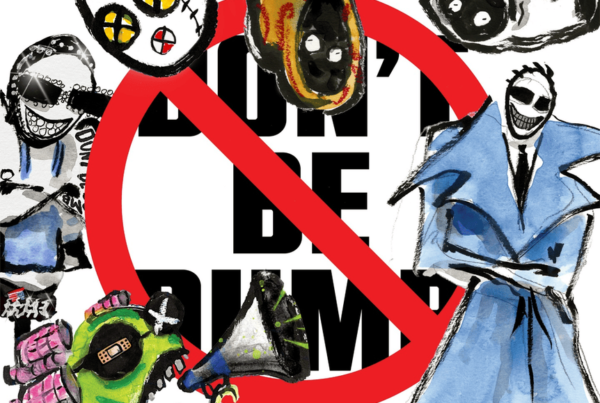Part two arrives with a whoosh and a bang, like a stellar meteor falling from the sky. If you missed part one – don’t. What would it look like if you missed an episode of Missed Connections? There’s a lot of music to go around and, even though we publish at least 365 reviews a year, we can’t cover everything, but we try!
This particular iteration of one of my favorite features here focuses on some ambient tunes to sun your ears in, groovy metalcore from some scene legends, and a trip – literally – into some psyched-out rock from Germany. Enjoy! Part three next week. 🙂
Dominik Böhmer
Is there anything that screams ‘Missed Connections’ more than an album not even our sentient music library Inter knew had come out until a few weeks after the fact? And from an artist who was amongst our favorites of 2020, no less? I assume that your answer, like mine, was a firm ‘no’. Operating on that basis, I will reveal to you what little gem it was that managed to exist undisturbed by our greedy music journalist ears, if just for a little while: it was none other than Music for Living Spaces by new age/ambient electronica artist Olive Ardizoni aka Green-House, whose gentle, unassuming work threw us for a loop with last year’s release of Six Songs for Invisible Gardens.
With the ‘kicking myself for not finding out about this record sooner’ portion of this review furiously checked off the list, let’s move on to what’s actually important: Music for Living Spaces. From the garden into the home, or so you’d think – until you realize that this project isn’t about the spaces we inhabit, but rather about the living spaces that are all around us, connected to us, intertwined with our very existence. An interesting duality of meaning there, wouldn’t you agree? Says Ardizoni themselves:
‘The intention of this project is to facilitate the connection between humans and nature. Instead of perceiving nature as something that’s separate from us, or outside of our homes, we can recognize nature as something that is within us and in everything we do in our daily lives.’
The overall vibe of their Green-House output hasn’t changed, however, and you’d be hard-pressed to find anyone willing to object to this. Gently roving between the whimsical and the sublime, these 9 tracks are calm, collected, and comforting, though never complacent or pretentious. These new age-y soundscapes don’t smack of the schlocky esotericism commonly associated with the genre; instead, they’re wholesome and thought-provoking in their exploration of the idea that ‘cuteness and joy are gateways to compassion. It’s the gateway to empathy and activating the network in your brain that boosts moral concern for other people in the world around you.’ It’s just beautiful music, the kind that will inevitably etch a gentle smile across your face.
I find it increasingly hard to write about ambient music on a song-by-song basis, mainly because it’s one of the most experience-based genres out there; what you get out of it can’t easily be determined off a single track. So if there’s one thing I’d like you to take away from this lil’ review, it’s that you should go listen to Music for Living Spaces (and Green-House in general), because this is an album that will nourish your heart and mind, providing you with solace and insight through its empathetic encouragement to face the world around you. Probably not the worst thing to have these days, eh?
Alex Sievers
Radical is a mostly top-shelf release for Every Time I Die. In short, it’s their fourth best album, sitting behind New Junk Aesthetic, Hot Damn!, and The Big Dirty but above 2016’s Low Teens. This record’s autobiographical MO from frontman Keith Buckley, as his life has changed significantly since 2016 (sobriety, new outlooks, divorce, etc.), is a change in perspective that’s at odds with how little the songwriting from these critical darlings has changed over the last 20 years. As every other hack has mentioned by now, five years between records is a big gap, the band’s lengthiest release pause. So I acknowledge that Buckley had plenty to share, whether it was the duress of American politics in the last five years or what varying life-changing moments and revelations he experienced in that interim.
While Radical is about genuinely radical changes in schools of thought for Buckley – it carries a strong philosophical slant; “Desperate Pleasures” dealing with spiritual emptiness and healing amidst the current material conditions – the songwriting hasn’t moved on from the go-to ETID formula. It all feels so indebted to what’s come before. Given how much goodwill they’ve accumulated, especially during the 2010s, they could easily get away with some deeper experimentation. That isn’t to say they aren’t great at what they do; there’s plenty of kick-ass choruses, sick riffs, and adrenaline-pumping moments found across Radical. It’s just that whenever they’ve changed shit up, the results spoke for themselves: just look at how powerful “Moor” was! That’s the exception more than the rule, thus proving said rule.
At 16 songs, this is an ETID double-album bonanza, yet due to that sound rarely changing, it becomes too much at 52 minutes, feeling at least four songs too long. Long albums can be awesome but the issue here is the unshakeable filler. Even with those sweeter, higher-pitched vocals on “People Verses,” it’s barely compelling. “AWOL” is just far too samey to feel lastingly impactful. Same goes for “sexsexsex” – a discussion on Buckley’s relationship dynamics and submissive personality – that’s painfully paint-by-numbers for the band. The sentiment of exchanging energies between sub and dominate personalities, following on from past self-critical tracks like “The Marvelous Slut” or “Wanderlust,” is commendable but the song itself could’ve been left chained up. As for “White Void”, it’s (ironically) about changing yourself once it’s already too late, seeing the band leap into melodic butt-rock ala Bad Wolves, with uninspiring hints of Deftones in the verses, and lowest common-denominator hooks that envision expensive desert-shot music videos.
Okay, that’s enough bitching from me, here’s what’s great about Radical. For one, the pitch-ascending guitars and vocals in “Sky” fly out of the Queen handbook, feeling unique and purposeful, giving the band so much added urgency. Elsewhere, “Thing With Feathers” is this dynamic, crooning rocker that’s packed with real heart. Written about Buckley’s sister passing away in 2017, it’s a celebration of her life and how we spend our time before we become memory, even featuring Manchester Orchestra’s Andy Hull for what is a lovely duet.
The questioning and overly apologetic mood of “Hostile Architecture” sounds like Hot Damn! era goodness spliced with the huge choruses they’d later concoct. The lyric ‘There’s too many ghosts, not nearly enough spirit’ is genius, Buckley using this song’s ‘architecture’ to examine regret and moving on via an after-party hangover analogy. Over on “The Whip”, ETID ride a wicked and blistering ghost-whip, summoning up some of the thickest breakdowns heard from them in well over a decade as it explores Deleuzian masochism; ideas of freedom, guilt, and even the power found through masochism. (What reading French philosophy does to a motherfucker).
“Distress Rehearsal” has this old-school angular metalcore attack in its second half that evokes their 2003 selves. It’s the best part of the song – a commentary on losing yourself, absolution and self-discovery – making up for its meh first half. The panicked “All This And War” sees ETID really let loose. Cowbell hits announce a rhythmic turnaround before ‘68’s Josh Scogin features for a groove-heavy 4/4 part that wouldn’t go amiss on an old Pantera album. Given Scogin’s history in Norma Jean and The Chariot, this one’s a match made in metalcore heaven. “We Go Together” is a chaotic end, like some sort of metal musical. The high point arriving when an off-putting orchestral sample plays as the band ditch timing altogether, coming in at once (ha, get it?) at various intervals with syncopated vocal fury and instrumental fire. It’s the album’s singularity for Buckley as a frontman, lover, father, and musician; a song encompassing all things, from nucleus to edge.
“Planet Shit” is pure anarchy, led by a blood-curdling mantra: ‘whose fucking side are you on!?’ It’s a fast and furious, Buckley letting out all the bullshit he saw happen under Trump; dolling out volatile critiques of institutional racism, police brutality, the selfishness and hypocrisy of your Bezoses or Musks, the ugly ‘good people on both sides’ lie, and anti-1% sentiments. Then there’s “Post-Boredom” – what can I say about this banger? The melodic shift two minutes in, where Buckley sings ‘I’ve done it all wrong for so long it feels okay’ nails precisely where he’s coming from now in life, serving up one of the best songs they’ve ever written. So maybe Radical isn’t perfect or a fabled 9/10 like most music press would have you believe, but it is just that: pretty fucking rad.
Pete Overell
Ever since Turtle Skull’s 2020 release, I’ve been infatuated by feel-good psych rock that is imbued with purpose, saturates the listener with great vibes, all the while defying genre standards. Because of that, I was smashing Elder’s Gold & Silver Sessions, as well as artists like Papir and My Brother The Wind, yet the best was yet to come.
Out of nowhere Nick DeSalvo, lead singer and guitarist of Elder, drops his new side project, a one-man foray into psych-rock that his main band would struggle to pull off without losing some of their core base of fans. And what a debut it is from delving, seeing Nick play without any concern, a plethora of instruments, stitched together seamlessly from recording to mastering. Hirschbrunnen released on June 11 of this year, and whilst I was hungry to review it at the time, instead I sat back in the warm British sun, sparked up a doobskin, and let the gorgeous soundwaves from delving roll over me.
Hirschbrunnen jumps around, with some tracks more psychedelic, others sporting more of a krautrock influence, whilst other lean heavily on electronic sounds. Some combine all elements flawlessly, with guitars shining through trippy layers of synthesizers like god-rays breaching the canopy on a spring day. “The Reflecting Pool”, one of my favourite tracks showcases this perfectly, with a host of instruments being dropped into the mix, each playing a role in creating a warm and inviting track. After the halfway point, things get really trippy, with electronic effects, combined with a washed-out effect on the mix, delving create a really trancey track, which plays like a mantra. You can fully lose four to five minutes on it, finding a lot of peace in your mind as it rumbles on.
Throughout the record you’ll notice lots of guitar motifs that sound similar to Elder’s latest record Omens, but what you’ll also get a lot of compared to Nick’s other band is a more open and less powerful mix. This allows you to really track the excellent bass and drums that he’s laid down on the album; stunning work from the multi-instrumentalist. In “Wait and See”, things get turned up to the max towards the end, with bouncy, fun riffs following up a powerful introduction.
I could certainly waffle on in detail about why each track absolutely rocks, but this is an psychedelic experience you simply must try alone. Before the year is done, be sure to spin delving and soak in Hirschbrunnen’s majesty.









